"Theory and Practice of Conflict Resolution" Study Group
Theories of conflict resolution, including conflict analysis, mediation, state-building, and peacebuilding, have significantly developed since the end of the Cold War. This development coincided with advancements in policy practices of conflict resolution through military intervention, international peace operations, development, and humanitarian aid. However, the nature of armed conflicts has changed so much for various reasons including the advent of the age of the Global War on Terror. Many ongoing contemporary armed conflicts including the Russo-Ukraine War and the Crisis over Gaza are also posing many challenges to existing theories of conflict resolution. The significant phenomenon of international intra-state conflicts impels us to develop our understanding of armed conflicts. The TPCR Study Group thus examines how new theoretical frameworks can be developed to better reflect the complex reality of contemporary armed conflicts.
Practices of conflict resolution, represented by international peace operations, are undergoing drastic changes. While UN peacekeeping missions remain a significant tool, they are no longer exclusively dominant, as there has been a significant reduction in budget and personnel. Various non-UN peace operations, composed of (sub-)regional organizations as well as ad-hoc coalitions of like-minded states, have been frequently established over the last three decades. These partnerships take various forms, and there is a growing need to link conflict resolution operations with international security measures in the age of international intra-state wars, the War on Terror and superpower rivalry. The TPCR Study Group also seeks to identify clues to develop new policies for international peace operations in the changing reality of the world.
The first major focus of the TPCR Study Group is the prospects and possibilities of conflict resolution as well as long-term reconstruction plans for Ukraine. The overall structural perspective of the TPCR Study Group is to theorize the linkage between the Indo-Pacific and the Euro-Atlantic and explore new practices of conflict resolution in these regions. The TPCR Study Group will also discuss cases in Africa, the Middle East, South Asia, and East Asia and remain active for at least three years.
Activities
Agendas
Members
(Chair)
- Hideaki Shinoda (Chair) | Professor of Graduate School of Global Studies, Tokyo University of Foreign Studies (TUFS); Visiting Senior Research Fellow of ROLES, RCAST, University of Tokyo
<Ukraine Group>
- Tomonori Yoshizaki | Professor of Graduate School of Global Studies, Tokyo University of Foreign Studies (TUFS)
- Fedorchenko-Kutuyev Pavlo | Professor at the Department of Social Sciences, Kyiv School of Economics, Adjunct Professor of Sociology and Sociology Department Chair, Igor Sikorsky Kyiv Polytechnic Institute (KPI)
- Anna Mykolayivna Ishchenko | Senior Lecturer and Deputy Dean of FSP for international activities, Igor Sikorsky Kyiv Polytechnic Institute (KPI)
- Olena Akimova Kasatnika | Docent and Acting Dean of the Faculty of Sociology and Law, Igor Sikorsky Kyiv Polytechnic Institute (KPI)
- Iurii Perga | Associate Professor and Vice-Dean for Research and Innovation, Igor Sikorsky Kyiv Polytechnic Institute (KPI)
- Philip Setler-Jones | Senior Research Fellow for Indo-Pacific Security, Royal United Services Institute (RUSI)
<East African Group>
- Mika Inoue|Professor, Toyo Gakuen University
- Masato Toriya|Associate Professor, Graduate School of Global Studies, Tokyo University of Foregin Studies
- Harinda R. Vidanage | Director, Centre for Strategic Assessment, General Sir John Kotelawala Defence University
・ROLES Report 48:「危機にある 国際刑事裁判所 (ICC)国際政治の荒波にさらされて」
https://roles.rcast.u-tokyo.ac.jp/publication/2025123148
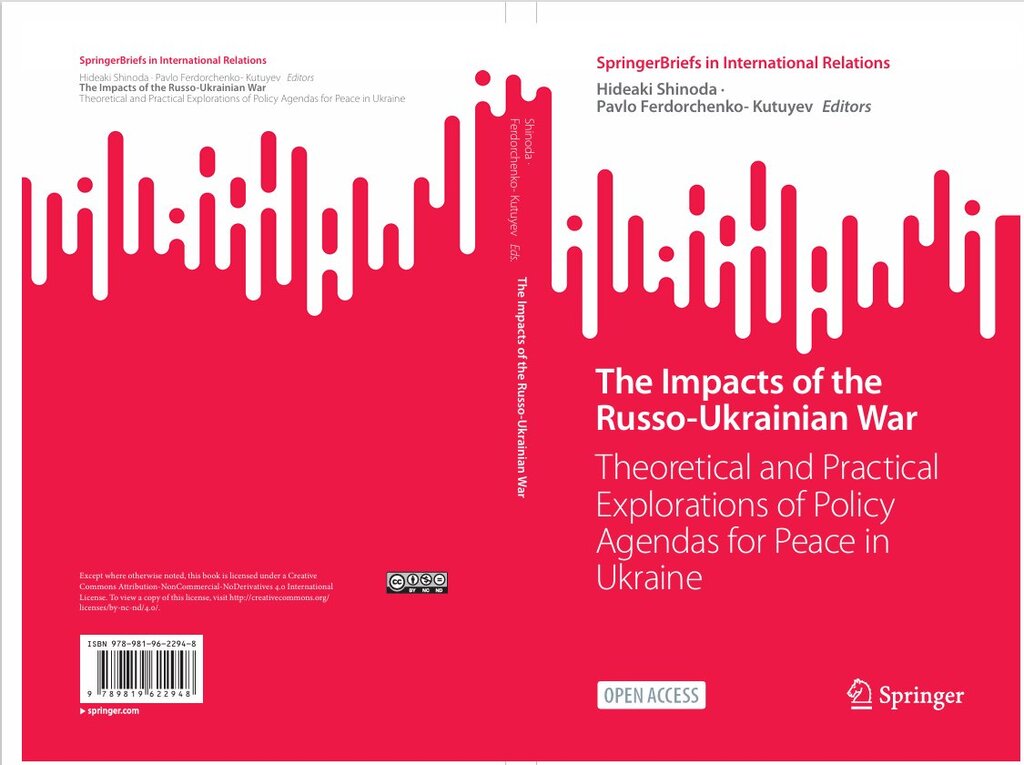
・ROLES Commentary No.28: Abdifatah Aden Abdi, "Somalia's Perspective on the Free and Open Indo-Pacific: A Path to Peace and Conflict Resolution"
・ROLES Commentary No.27: Philip Shetler Jones, "A common problem of status quo vs. revolutionary foreign policies narrows the scope for conflict resolution in the Indo-Pacific and the Euro-Atlantic"
・ROLES Working Papers [日本語版] オレナ・アキモヴァ、イウリイ・ペルガ、アンナ・イシュチェンコ 「紛争地域における地域(コミュニティ)レジリエンス:紛争解決と復興の可能性の要因を探る」
・ROLES Working Papers [日本語版] 篠田英朗 「紛争解決の理論と実践の批評的な検討:『国際的な国内武力紛争』にはどのようにアプローチすべきか?」
・ROLES Working Papers: Olena Akimova, Iurii Perga and Anna Ishchenko: "Local (community) Resilience in Conflict zone Regions: in the search for Factors of Conflict resolution and Recovery Potential"
・ROLES Working Papers: Hideaki Shinoda: "A Critical Examination of Theories and Practices of Conflict Resolution: How do we approach "international intra-state armed conflicts"?"
・ROLES COMMENTARY No.21 篠田英朗「ガザ危機に直面する日本が追求すべきこと」
Conference Papers: 2024.05.22 (Wed.): Hideaki Shinoda: "What Japan Should Pursue in the Face of the Gaza Crisis"
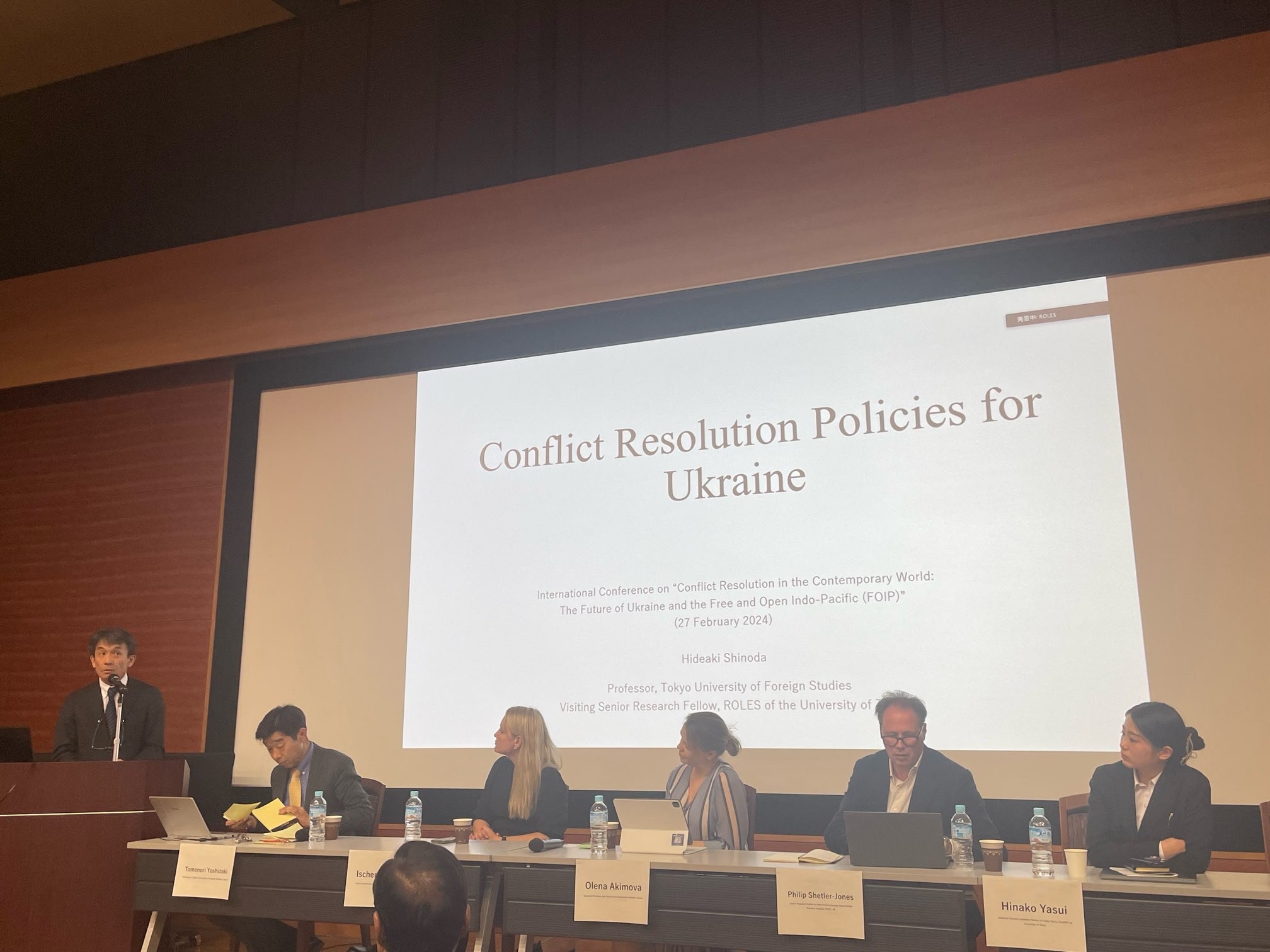
Activity records
2026.01.01 (Thu.)
News
Publications and Reports
3 volumes of analyses on the conflict and security in South Asia, East Africa, and the crisis in ICC published as ROLES Reports
2025.09.20 (Sat.)
News
Announcements
7th Regular Meeting of JFY2025 (16 September 2025) Final Preparation for ROLES Review: “South Asia from the Perspective of Geopolitics and Conflict Resolution”
2025.09.20 (Sat.)
News
Announcements
6th Regular Meeting of JFY2025 (12 September 2025) “JICA’s ongoing response to Ukraine crisis”
2025.08.01 (Fri.)
News
Announcements
5th Regular Meeting of JFY2025 (13 July 2025) “Preparatory Meeting for ROLES Review “Conflict Resolution in Eastern Africa and FOIP”
2025.06.25 (Wed.)
News
Announcements
4th Regular Meeting of JFY2025 (23 June 2025) “Preparatory Meeting for ROLES Review “Conflict Resolution in South Asia”
2025.06.10 (Tue.)
News
Announcements
3rd Regular Meeting of JFY2025 (10 June 2025) “Challenges for International Peace, Development and Humanitarian Assistance”
2025.06.05 (Thu.)
News
Announcements
2nd Regular Meeting of JFY2025 (3 Jun 2025) “Ripeness and MEO (Mutually Enticing Opportunities): Discussions about The Impacts of the Russo-Ukrainian War”
2025.05.31 (Sat.)
News
Announcements
1st Regular Meeting of JFY2025 (27 May 2025) “Preparatory Meeting for ROLES Review “Conflict Resolution in South Asia”
2025.03.01 (Sat.)
Event
Seminar
Research Seminar: “Book Launch: The Impacts of the Russo-Ukrainian War : Theoretical and Practical Explorations of Policy Agendas for Peace in Ukraine”
2025.02.09 (Sun.)
News
Announcements
Hideaki Shinoda, Pavlo Fedorchenko-Kutuyev Eds. The Impacts of the Russo-Ukrainian War: Theoretical and Practical Explorations of Policy Agendas for Peace in Ukraine, published
2025.02.04 (Tue.)
News
Announcements
The report of the inaugural meeting of the research group titled "The ICC International Criminal Court) in Crisis: Navigating the Turbulence of International Politics."
2025.01.25 (Sat.)
News
Announcements
The report of the meeting in Nairobi, Kenya
2024.12.18 (Wed.)
News
Announcements
The report of meetings in New Delhi, India and Colombo, Sri Lanka
2024.11.04 (Mon.)
News
Events
ROLES-TUFS-BIISS Dialogue on Bangladesh in Transition: New Directions for FOIP and BIG-B
2024.11.02 (Sat.)
News
Announcements
4th Regular Meeting of JFY2024 (2 November 2024) "The impacts of Russo-Ukraine War: Theoretical and Practical Explorations of Policy Agendas for Peace in Ukraine"
2024.10.23 (Wed.)
News
Announcements
3rd Regular Meeting of JFY2024 (23 October 2024) "The impacts of Russo-Ukraine War: Theoretical and Practical Explorations of Policy Agendas for Peace in Ukraine"
2024.06.14 (Fri.)
News
Announcements
2nd Regular Meeting of JFY2024 (14 June 2024) "Prospects of Ukraine's Integration into the Global Security Order based on End-of-war Scenarios"
2024.04.04 (Thu.)
News
Announcements
1st Regular Meeting of JFY2024 (4 April 2024) "Towards Policy Recommendations for Conditions for Conflict Resolution for Ukraine"
2024.02.27 (Tue.)
Event
Symposium
International Conference "Conflict Resolution in the Contemporary World: The Future of Ukraine and the Free and Open Indo-Pacific (FOIP)"
2024.01.15 (Mon.)
Event
Others
7th Regular Meeting of JFY2023 (15 January 2024) “Lessons of Recent Practices of Conflict Resolution and their Implications for Ongoing Conflicts in the World”
2023.12.12 (Tue.)
Event
Others
6th Regular Meeting of JFY2023 (12 December 2023) “Polemic Points of Recent Theories of Conflict Resolution from the Perspective of Ongoing Conflicts in the World”
2023.11.02 (Thu.)
Event
Others
5th Regular Meeting of JFY2023 (2 November 2023) “The Linkage between Euro-Atlantic and Indo-Pacific Security”
2023.10.09 (Mon.)
Event
Others
4th Regular Meeting of JFY2023 (9 October 2023) “Security Guarantee for Ukraine?”
2023.09.18 (Mon.)
Event
Others
3rd Regular Meeting of JFY2023 (18 September 2023) “NATO’s Peace Operations after the Cold War: Implications for the Indo-Pacific Region and Ukraine”
2023.08.29 (Tue.)
Event
Others
2nd Regular Meeting of JFY2023 (29 August 2023) “Assessments of the Impacts of the Russo-Ukraine War”
2023.08.11 (Fri.)
Event
Others
1st Regular Meeting of JFY2023 (11 August 2023) “Formulating the Initial Framework of the Study Group”
2023.07.24 (Mon.)
News
Announcements
MFO Director General Elizabeth L. Dibble visits ROLES
Members
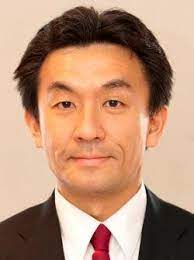
Chair
Hideaki SHINODA
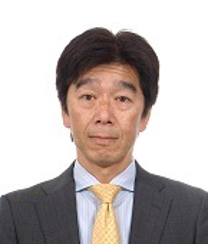
Tomonori YOSHIZAKI

Anna Mykolayivna Ishchenko
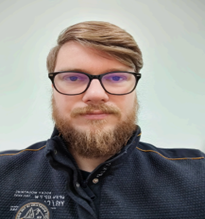
Iurii Perga

Olena Akimova

Fedorchenko-Kutuyev Pavlo
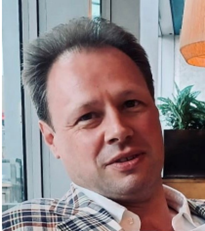
Philip Shetler-Jones
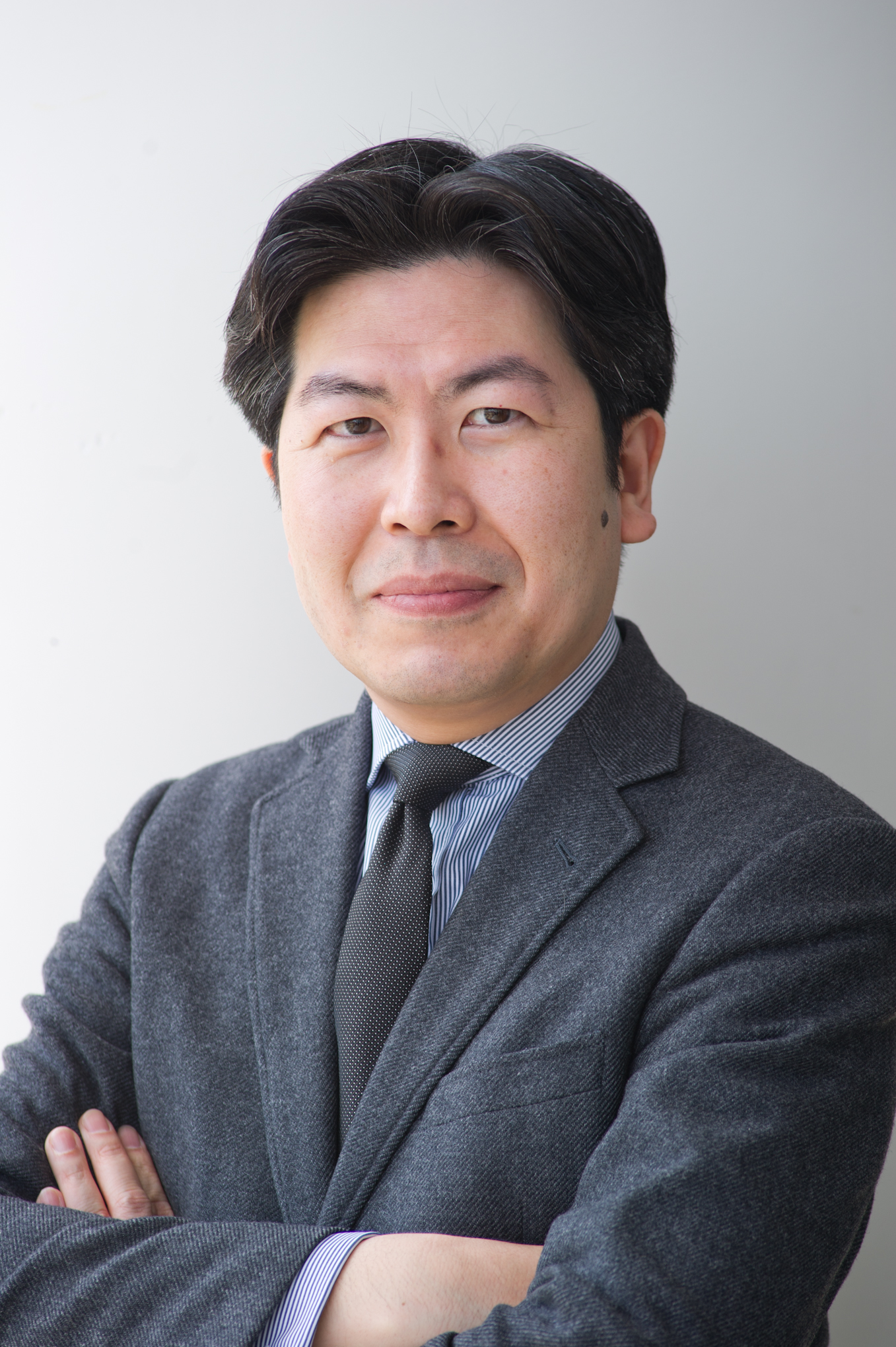
Adjunct Member
Michito TSURUOKA
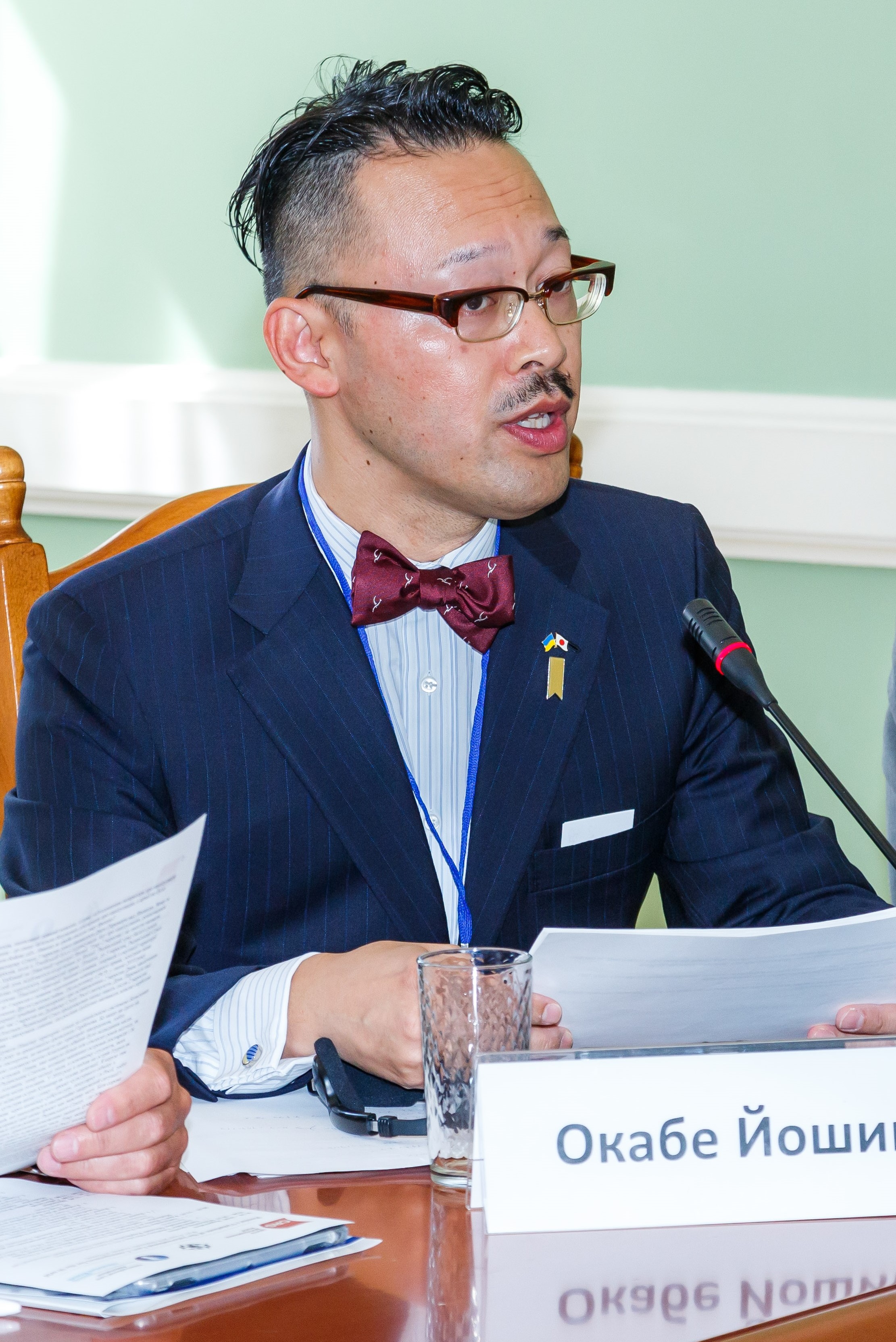
Adjunct Member
Yoshihiko Okabe
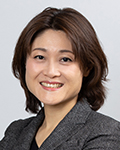
Adjunct Member
Atsuko HIGASHINO
Specialised in international relations theory, European international politics, EU Eastern enlargement and external relations.
Publications
2025.12.31 (Wed.)
Paper
ROLES Report No. 47: Agendas for Conflict Resolution in Eastern Africa
2025.12.31 (Wed.)
Paper
ROLES Report No. 46: South Asia from the Perspective of Geopolitics and Conflict Resolution
2024.07.24 (Wed.)
Commentary
Abdifatah Aden Abdi, "Somalia's Perspective on the Free and Open Indo-Pacific: A Path to Peace and Conflict Resolution" (ROLES Commentary No. 28)
2024.07.24 (Wed.)
Commentary
Philip Shetler-Jones, "A common problem of status quo vs. revolutionary foreign policies narrows the scope for conflict resolution in the Indo-Pacific and the Euro-Atlantic" (ROLES Commentary No. 27)
2024.07.14 (Sun.)
Paper
[Working Papers]Olena Akimova, Iurii Perga, Anna Ishchenko "Local (community) Resilience in Conflict zone Regions: in the search for Factors of Conflict resolution and Recovery Potential"
2024.07.14 (Sun.)
Paper
[Working Papers]Hideaki Shinoda "A Critical Examination of Theories and Practices of Conflict Resolution: How do we approach 'International intra-state armed conflicts'?"
2024.05.22 (Wed.)
Commentary
[Conference Papers] Hideaki Shinoda "What Japan Should Pursue in the Face of the Gaza Crisis"
2023.10.06 (Fri.)
Commentary
ROLES INSIGHTS No. 2023-4 : The Problematic Nature of the Naming of the “Ukraine War”
2023.10.03 (Tue.)
Commentary
ROLES INSIGHTS No.2023-03: "Shifting Trust: Ukrainian Sentiments Towards Social Institutions Before and During War"
2023.09.25 (Mon.)
Commentary
ROLES INSIGHTS No.2023-02: "Assessment of the Political Impact of the Russo-Ukraine War"
